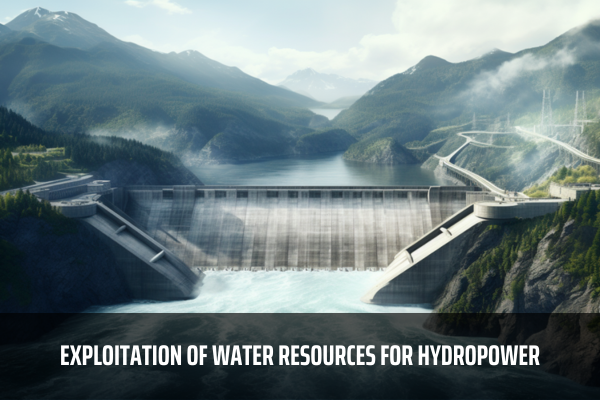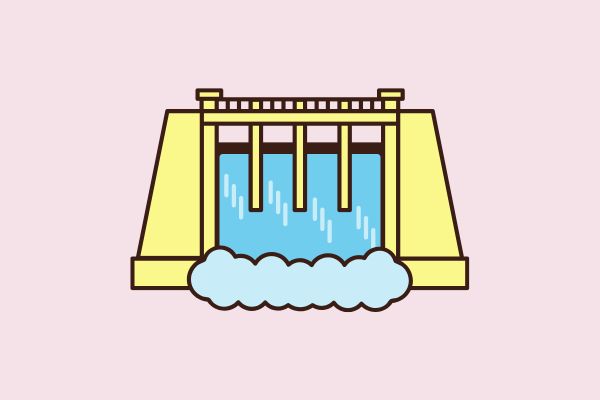What are the regulations on exploitation of water resources for hydropower in Vietnam? What are the regulations on exploitation of water resources for domestic activities in Vietnam?
- What are the regulations on exploitation of water resources for hydropower in Vietnam?
- What are the regulations on exploitation of water resources for domestic activities in Vietnam under the Law on Water Resources 2023?
- What are 10 prohibited acts related to water resources in Vietnam from July 1, 2024 under the Law on Water Resources 2023?
What are the regulations on exploitation of water resources for hydropower in Vietnam?
Pursuant to the provisions of Article 45 of the Law on Water Resources 2023, there is content on exploitation of water resources for hydropower as follows:
- The exploitation of water resources for hydropower must ensure the integrated and multi-purpose use, except for small-scale water exploitation; participate in flood reduction and water supply to lowlands at the request of competent authorities; satisfy dam and reservoir safety requirements.
-. Organizations and individuals exploiting water resources for hydropower shall comply with the reservoir and inter-reservoir operation procedures according to Article 38 of Law on Water Resources 2023 and law on dam and reservoir safety.
- The Ministry of Industry and Trade shall direct the review and adjustment of hydroelectric reservoir operation procedures according to Article 38 of Law on Water Resources 2023 to ensure the safe, economical, efficient and multi-purpose use of water, and flood and inundation prevention; maintain the minimum flow as prescribed in Article 24 of Law on Water Resources 2023 and supply of water to lowlands.

What are the regulations on exploitation of water resources for hydropower in Vietnam? What are the regulations on exploitation of water resources for domestic activities in Vietnam?
What are the regulations on exploitation of water resources for domestic activities in Vietnam under the Law on Water Resources 2023?
Pursuant to the provisions of Article 43 of the Law on Water Resources 2023, instructions on exploitation of water resources for domestic activities are as follows:
- Organizations and individuals exploiting water resources for production and supply of clean water for domestic activities shall:
+ Apply standards and technical regulations, and operate water supply systems, have plans for backup water supply, prevention of and response to water source pollution incents, water scarcity and other incidents according to regulations of law on water supply, ensuring the stable, safe and continuous supply of water and minimization of water loss and waste;
+ Only convey water to domestic water safeguard zones, control and supervise activities within domestic water safeguard zones;
+ Carry out monitoring of water resources, supervision of water resource exploitation and automatic, continuous and periodic monitoring and surveillance of the quality of exploited water sources according to Article 51 of the Law on Water Resources 2023, connect and transmit data to the national water resources information system and database.
- Centralized and decentralized water supply models shall be combined upon investment in construction, management and operation of domestic water supply facilities. The investment in construction, management and operation of centralized domestic water supply facilities must not militate against the water exploitation by organizations and individuals issued with the license to exploit water resources within the water supply service water.
- The Ministry of Construction, Ministry of Agriculture and Rural Development and Ministry of Health shall, within their jurisdiction, bear the following responsibility:
+ Revise details about water supply in the planning related to supply of domestic water to urban and rural areas in conformity with water resource-related planning;
+ Promulgate and implement standards and technical regulations to ensure safety, economical and efficient use of water, and minimize water loss; promulgate national technical regulations on clean water quality used for domestic purposes; propose mechanisms and policies to support sustainable development and household safe water supply in rural areas;
+ Direct the formulation of plans for backup water supply, prevention and response to water source pollution incents, water scarcity and other incidents.
- Provincial People's Committees shall organize the implementation of emergency measures to maintain the supply of domestic water in the case of a drought, water scarcity or serious water pollution incident causing water scarcity.
- The Government shall promulgate regulations on production, supply and consumption of domestic water.
What are 10 prohibited acts related to water resources in Vietnam from July 1, 2024 under the Law on Water Resources 2023?
Pursuant to the provisions of Article 8 of the Law on Water Resources 2023, 10 prohibited acts related to water resources are as follows:
(1) Dumping wastes and garbage, dumping or leaking hazardous substances or discharging hazardous emissions into water sources.
(2) Discharging wastewater into groundwater sources; discharging wastewater that has yet to be treated in accordance with environmental technical regulation on wastewater into surface water sources and seawater.
(3) Discharging wastewater and introducing wastes into domestic water safeguard zones.
(4) Illegally exploring, exploiting and using water resources, practicing groundwater drilling.
(5) Encroaching on rivers, streams, canals or ditches or carrying out river, stream, ditch or channel reclamation, unless otherwise prescribed by law; placing obstructions or obstacles, building architectures or planting trees, thus hindering flood drainage and water flow of rivers, streams, reservoirs, canals or ditches but taking no remedial measures.
(6) Illegally exploiting sand, gravel, sludge, soil and other types of minerals in rivers, streams, canals, ditches or lakes within water source protection corridors; carrying out drilling or digging operations, building houses, architectural objects or conducting within water source protection corridors, thereby resulting in river, stream, canal, ditch or lake bank erosion.
(7) Destroying facilities intended for protection, regulation or storage of water, exploitation, use, monitoring and surveillance of water resources, facilities intended prevention of, response to and recovery from damage caused by water.
(8) Falsifying information and data on water resources.
(9) Failure to comply with procedures for operating reservoirs and inter-reservoirs promulgated by competent authorities.
(10) Building dams, reservoirs or facilities for water regulation or storage or water source development in contravention of water resource-related planning, provincial planning and other relevant planning.
Law on Water Resources 2023 comes into force from July 1, 2024 except Clauses 3 and 4, Article 85 of Law on Water Resources 2023
LawNet
